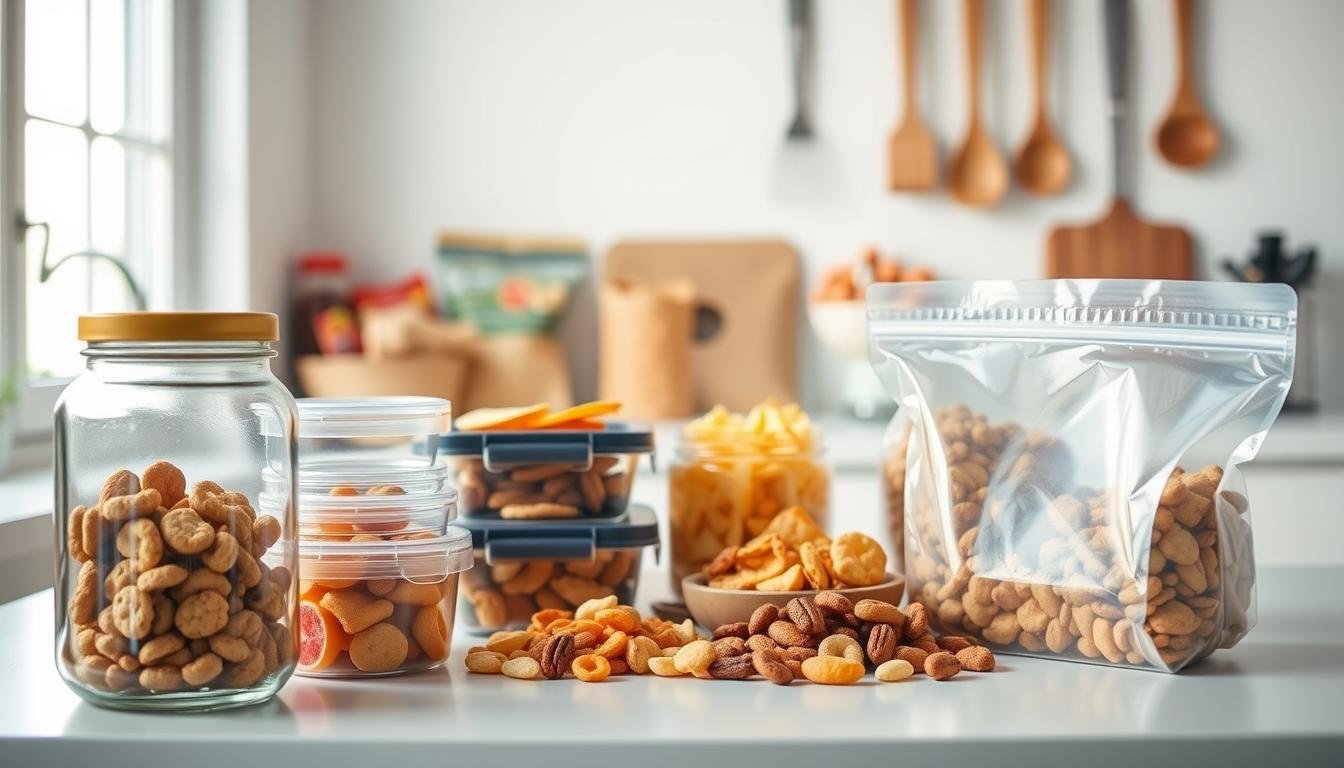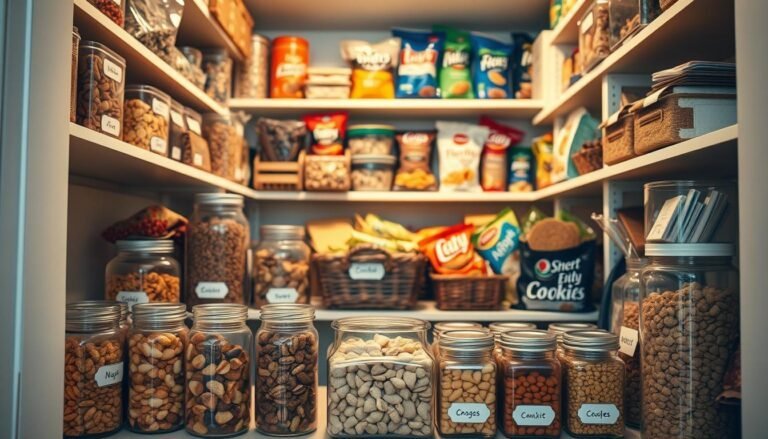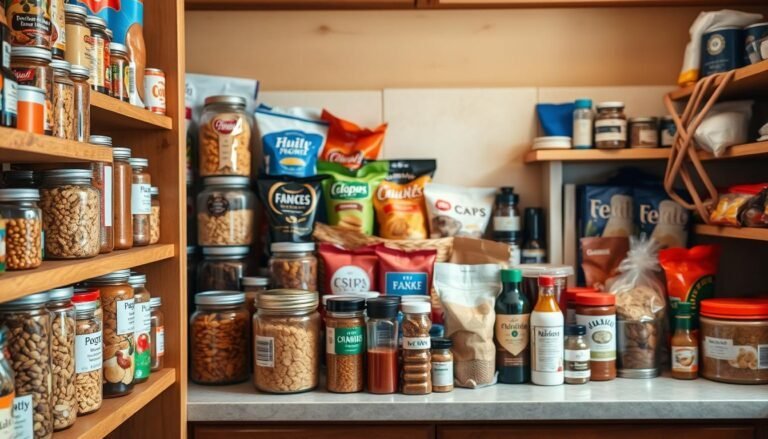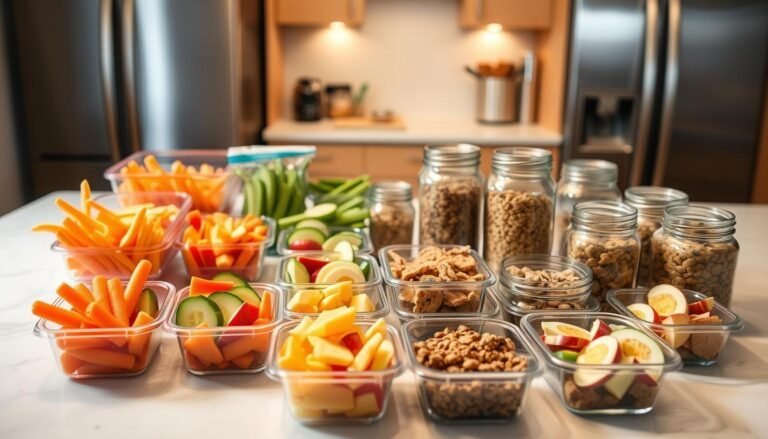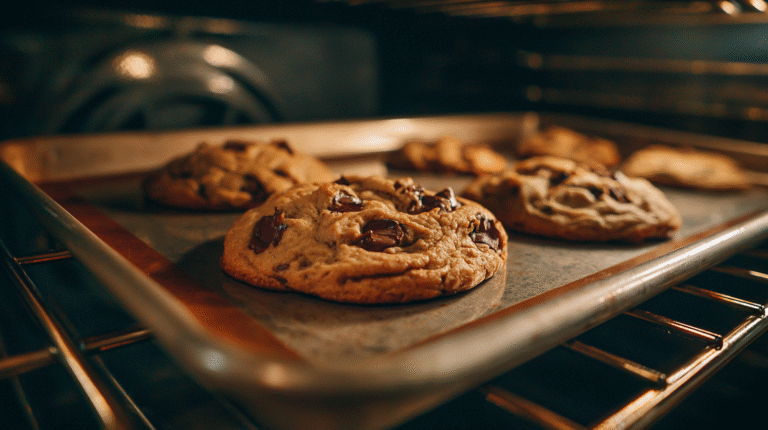Disclosure: This Post Contains Affiliate Links; We earn a commission on purchases.
Keeping snack freshness is key for a healthy diet. Eating whole foods like fruits, veggies, nuts, and seeds gives us important nutrients. They also help keep our energy up all day.
The freshness of these snacks affects their nutritional value and taste. It’s important to store them right to keep them fresh.
To keep snacks fresh, you need to store them well. For more tips on healthy snacking, check out our ultimate guide to healthy snacking. It has great advice on keeping snacks fresh and offers different storage solutions.
Key Takeaways
- Store snacks in airtight containers to maintain freshness.
- Use small lunchboxes with icepacks to keep snacks cool.
- Choose snack storage solutions like Stasher bags or collapsible containers.
- Opt for healthy snack options like fruits, veggies, and nuts.
- Consider reusable utensils for convenience.
Understanding Snack Freshness Factors
Knowing what makes snacks fresh is key. Snacks are great when fresh but can spoil fast. This happens when they’re exposed to certain things.
The Science Behind Food Freshness
Many chemical and physical changes affect food freshness. Moisture, air, heat, and light can make snacks stale or bad. For example, moisture can make crackers soft. Heat can melt chocolate or make nuts bad.
Common Enemies: Moisture, Air, Heat, and Light
These four things can really hurt snack freshness. Moisture can make snacks stale or moldy. Air can cause them to go bad by changing their taste. Heat makes snacks spoil faster. And light can break down their nutrients and taste.
How to Recognize When Snacks Have Gone Bad
It’s important to know when snacks are no longer good. Look for mold, sliminess, or a bad smell. Check the texture and taste too. If they’re stale, rancid, or taste bad, they’re not good anymore.
By knowing what affects snack freshness and when they’re bad, you can enjoy them better. Use snack storage hacks like airtight containers. Store them in a cool, dry place to keep them fresh.
Essential Storage Containers and Tools
To keep snacks fresh, you need the right storage containers and tools. Good snack preservation techniques depend on the quality of storage solutions.
Airtight Containers: Types and Recommendations
Airtight containers are key for storing snacks effectively. They come in plastic, glass, and silicone. Each has its own benefits.
- Plastic containers are lightweight and affordable.
- Glass containers are durable and easy to clean.
- Silicone containers are flexible and save space.
Vacuum Sealers: Worth the Investment?
Vacuum sealers remove air, keeping snacks fresh longer. They’re great for nuts, dried fruits, and snacks that spoil easily.
Silica Gel Packets and Oxygen Absorbers
Silica gel packets and oxygen absorbers keep snacks fresh. They absorb moisture and oxygen, stopping spoilage and staleness.
Specialty Storage Solutions for Different Snacks
Each snack needs its own storage solution. For example, chips need airtight containers to stay crunchy. Baked goods might need containers that keep humidity right.
Using these snack freshness secrets, you can enjoy your favorite snacks for longer.
The Secret to Keeping Snacks Fresh and Delicious
The secret to keeping snacks fresh is to control their storage environment. You need to understand and manage key factors that affect snack quality.
Temperature Control: Pantry vs. Refrigerator vs. Freezer
Temperature is very important for snack freshness. Different snacks need different temperatures. For example, chips and crackers do well in a cool, dry pantry. But, cookies and baked goods might need the fridge to stay fresh longer. The freezer is best for long-term storage of many snacks.
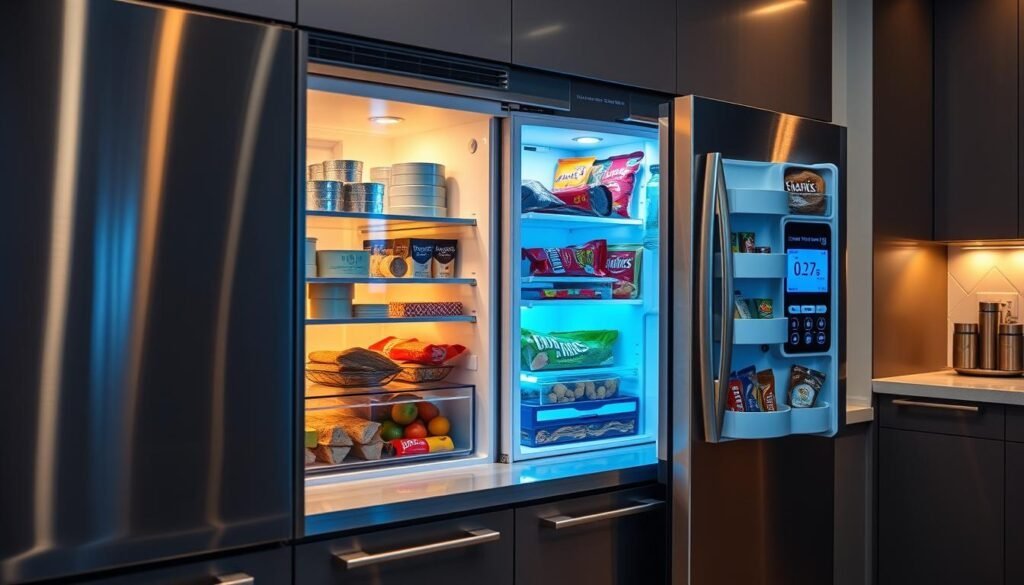
Humidity Management for Optimal Freshness
Humidity also matters a lot for snack storage. High humidity can make snacks stale or taste bad. Using airtight containers or silica gel packets helps control humidity and keeps snacks fresh.
Light Exposure Prevention Strategies
Light can also harm snack quality. It can make nuts and seeds go bad or chips lose flavor. Keeping snacks in opaque containers or away from sunlight helps prevent this.
The Importance of Original Packaging
Storing snacks in their original packaging helps keep them fresh. Original packaging protects snacks from moisture, air, and light. If the packaging can’t be sealed, move the snack to an airtight container.
Following these snack preservation tips lets you enjoy your favorite snacks longer. Proper storage, including temperature, humidity, and light control, is essential for keeping snacks fresh.
Storage Strategies for Different Snack Types
Snack storage isn’t the same for all snacks. Each snack needs its own way to stay fresh. Knowing these differences is key to keeping your snacks good.
Crispy Snacks: Chips, Crackers, and Popcorn
Crispy snacks get soggy if they get wet. Keep them in airtight containers with silica gel to soak up moisture. Vacuum sealing helps too, by removing air.
- Use airtight containers to prevent moisture entry.
- Include silica gel packets to absorb moisture.
- Consider vacuum sealing for extra freshness.
Baked Goods: Cookies, Brownies, and Muffins
Baked goods dry out if not stored right. Put them in airtight containers at room temperature or in the fridge. Freezing them is good for longer storage, wrapped well in plastic or foil.
- Store in airtight containers at room temperature or refrigerate.
- Wrap tightly before freezing to maintain freshness.
Nuts and Trail Mixes: Preventing Rancidity
Nuts and trail mixes spoil if exposed to heat, light, or air. Keep them in cool, dark places in airtight containers. Refrigerate or freeze them for longer storage.
- Store in cool, dark places.
- Use airtight containers to prevent oxidation.
- Refrigerate or freeze for longer storage.
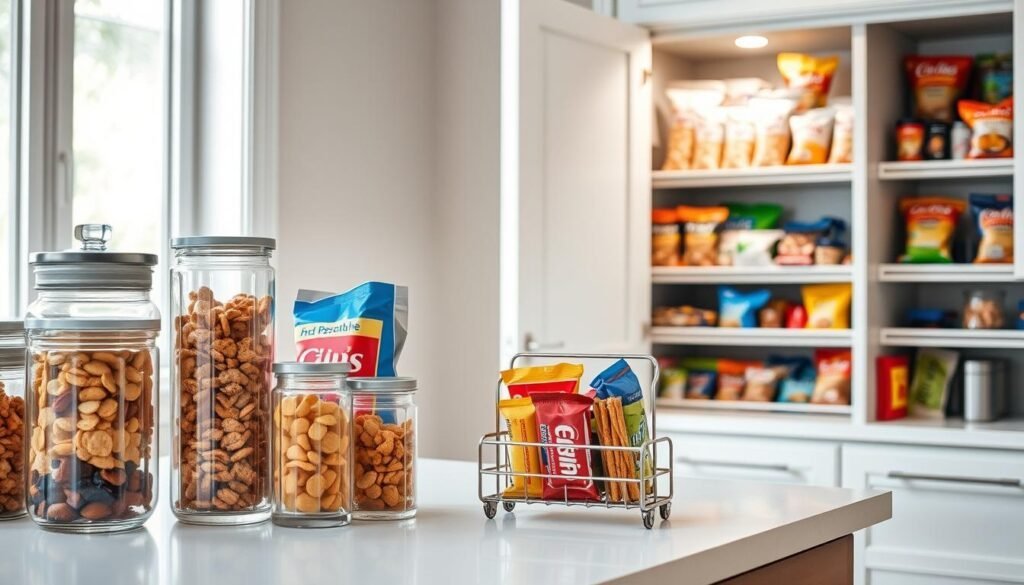
Dried Fruits and Jerky: Maintaining Texture
Dried fruits and jerky lose texture if not stored right. Keep them in airtight containers to keep their texture. To revive them, place them in a container with a damp paper towel, but be careful not to make them too wet.
Fresh Produce Snacks: Extending Crispness
Fresh produce snacks like fruits and veggies lose crispness fast. Store them in breathable bags or containers that keep humidity right. Refrigeration also helps keep them fresh.
- Use breathable bags or containers.
- Maintain appropriate humidity levels.
- Refrigerate to extend freshness.
Using these storage tips for different snacks keeps them fresh longer. This way, your snacks stay tasty and enjoyable for more time.
Common Snack Storage Mistakes to Avoid
Snack storage might seem easy, but many mistakes can ruin snack freshness. Knowing these mistakes helps keep snacks tasting great.
Improper Sealing Techniques
Sealing snack containers wrong is a big mistake. Failing to seal containers tightly lets air, moisture, and contaminants in. This makes snacks stale or rancid.
Mixing Different Types of Snacks
Putting different snacks in one container is bad. It can mix their moisture and flavors. Store each snack type separately to keep their quality.
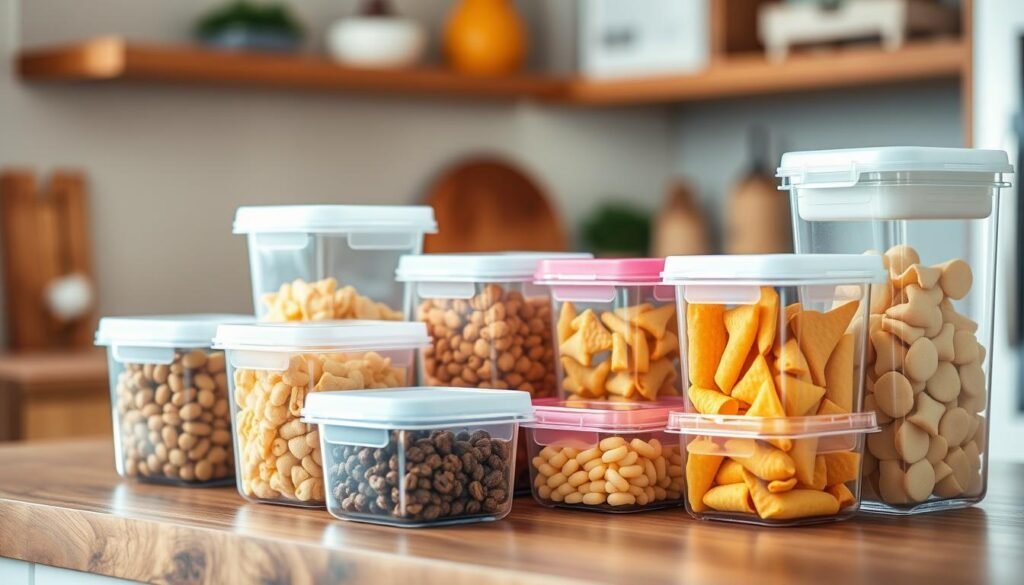
Ignoring Manufacturer’s Storage Instructions
Many snack packages have special storage tips. Ignoring these guidelines can mess up how snacks are stored. This affects their freshness.
Forgetting About Stored Snacks
Forgetting snacks in storage can lead to expired or spoiled food. Check stored snacks often. This way, they stay fresh and are eaten before they spoil.
Maintaining Snack Freshness Made Easy
Follow the snack preservation tips in this article to enjoy snacks longer. Keeping snacks fresh is key. It’s all about how you store and take care of them.
Snacks can go bad if they get too wet, exposed to air, or too hot. Use the right containers and tools. Airtight containers and vacuum sealers are great for this.
Not all snacks are the same. Chips and crackers need airtight containers. Nuts and trail mixes need to stay dry and cool. These tips help keep your snacks fresh and healthy.
Using these easy tips, you can enjoy your snacks without worrying about them getting stale. Storing snacks right is a simple way to keep them fresh and tasty.
FAQ
What is the best way to store snacks to maintain their freshness?
How can I prevent my snacks from becoming stale or rancid?
Can I store different types of snacks together?
How often should I check on my stored snacks?
Are there any specific storage tips for crispy snacks like chips or crackers?
Can I store snacks in their original packaging?
How can I maintain the texture of dried fruits and jerky?

With a passion for making good food easy, Ryan focuses on tips, tricks, and approachable advice for anyone who wants to eat well without spending hours in the kitchen. Whether you’re prepping lunchboxes, feeding a busy family, or just need something tasty in a pinch, Ryan’s here to help you keep it quick and simple—one bite at a time.
Subscribe to Our Newsletter

